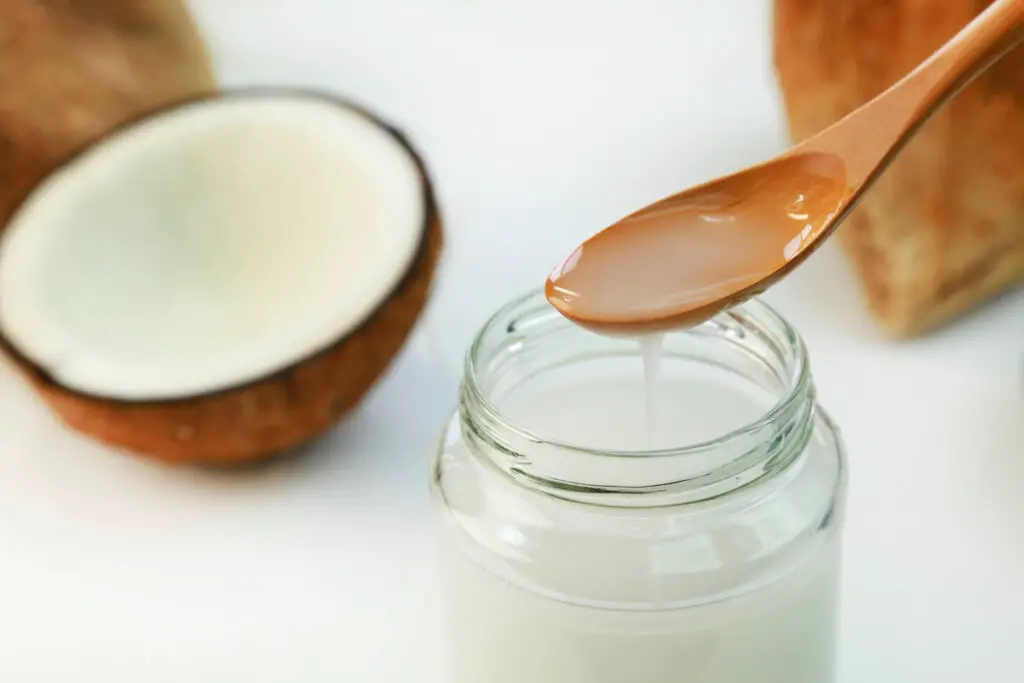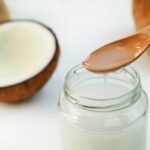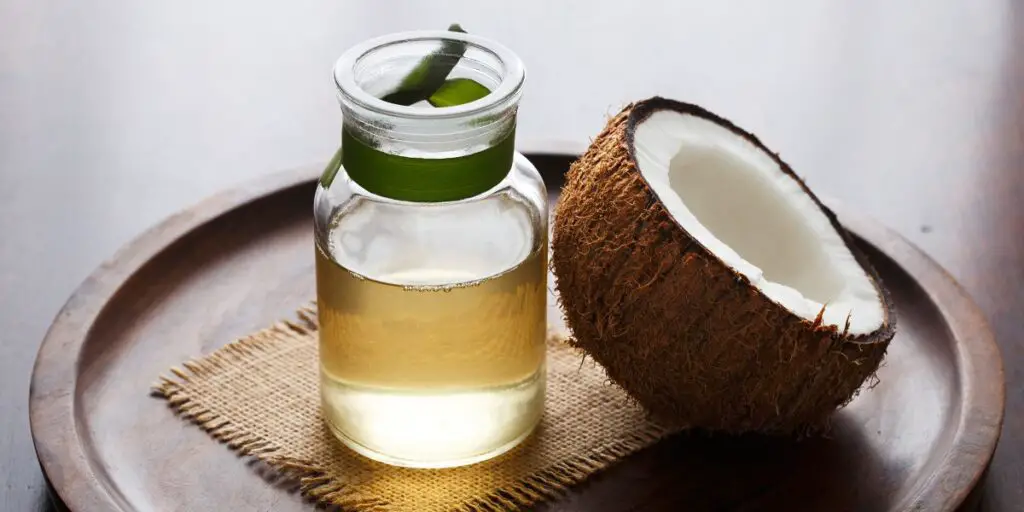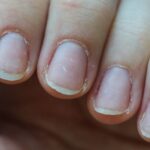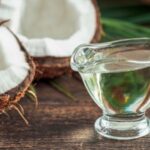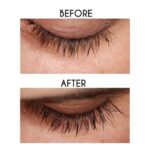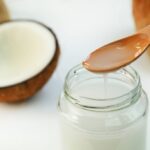
For those with locs, coconut oil is a popular choice for maintaining healthy hair.
It has many benefits that make it an attractive option, but there are some drawbacks as well.
Let’s take a look at what even is coconut oil and the five benefits and drawbacks of using coconut oil for locs.
Contents
- 1 What Is Coconut Oil?
- 2 How To Use Coconut Oil For Locs?
- 3 The Pros and Cons of Using Coconut Oil for Locs:
- 4 Water and Coconut Oil for Locs:
- 5 Does Using Coconut Oil For Locs Cause Buildup?
- 6 Should I Oil My Locs Every Day?
- 7 What Should You Not Use on Locs?
- 8 How Do You Thicken Locs?
- 9 Should I Oil My Locs Wet or Dry?
- 10 Why Does My Hair Feel Worse After Coconut Oil?
- 11 Conclusion:
What Is Coconut Oil?
Coconut oil comes from the fruit of a coconut palm tree.
It has been used for centuries as a beauty product because it contains fatty acids such as lauric acid and caprylic acid which are both known to have healing properties for skin and hair.
Coconut oil is solid at room temperature but melts when heated up slightly. This makes it easy to apply directly onto your scalp or use in a deep conditioner.
How To Use Coconut Oil For Locs?
The best way to use coconut oil for locs is by using a pre-shampoo treatment.
This means applying the oil liberally onto your scalp before you shampoo your hair.
- Massage it into your scalp gently using circular motions and leave it on for 15 minutes or longer before shampooing off with warm water.
- Another option is to mix coconut oil with other ingredients like honey or aloe vera gel to create a mask that can be applied directly onto the locs themselves before being rinsed out with warm water after 15 minutes or more.
- You can also use coconut oil as a deep conditioner after shampooing by applying generously onto the length of each loc and leaving it on overnight (or at least several hours) before rinsing off with warm water in the morning.

The Pros and Cons of Using Coconut Oil for Locs:
Here are the pros and cons of using coconut oil for locs:
Benefits of Coconut Oil For Locs:
1. Moisturizing – Using coconut oil can help keep your scalp hydrated and prevent dryness. This is especially helpful if you have dry or brittle hair that tends to break easily.
2. Detangling – Coconut oil helps soften the hair, making it easier to detangle knots and tangles. This can help reduce the amount of time it takes to style your locs and keep them looking their best.
3. Shine – Coconut oil can add shine to dull or lackluster locks, giving them a glossy finish that looks great in pictures!
4. Protection – Coconut oil acts as a barrier against the elements, keeping moisture in and pollutants out. This can help protect your locs from environmental damage such as sun exposure or windy conditions.
5. Smoothing – Coconut oil helps smooth out split ends and frizziness, giving your locs a neat and polished look without having to use any additional products or styling tools.
Drawbacks of Coconut Oil For Locs:
1. Greasy Feel – Too much coconut oil can leave you locs feeling greasy or weighed down after styling them, making them difficult to manage throughout the day.
2. Product Build-Up – Over time, coconut oil can accumulate on the scalp and form product build-up which can clog pores and lead to dandruff or other scalp issues if left unchecked.
3. Weakening – While some people swear by using coconut oil on their locs as a strengthening agent, overuse can actually weaken the strands due to its heavy weight when applied directly onto the hair shaft without dilution with other oils or conditioners first.
4 . Overdrying – If you use too much coconut oil without first hydrating your strands properly (either with water-based conditioning products like leave-in conditioners or moisturizing oils like jojoba) you may end up overdrying your locs and causing brittleness or breakage.
5 . Unpleasant Odor – Some people find that using coconut oil on their locs can leave behind an unpleasant odor that lingers even after washing it off.
Water and Coconut Oil for Locs:
One of the best ways to use coconut oil for locs is by mixing it with water.
This helps to dilute the oil, making it less likely to leave a greasy residue on your scalp or weigh down the strands.
It’s also important to remember that using too much coconut oil can leave hair looking flat and lifeless so make sure to use just enough and not go overboard with it.
Additionally, you can also add other oils like jojoba or castor oil for an extra boost of moisture as well as leave-in conditioners to help keep your locks looking their best.
Does Using Coconut Oil For Locs Cause Buildup?
Using coconut oil on locs can cause buildup over time if it isn’t washed off properly.
It’s important to shampoo your hair on a regular basis and use clarifying shampoos every so often to help remove any product residue that may be present.
Additionally, you can add the occasional apple cider vinegar rinse as this helps to break down buildup as well.
Should I Oil My Locs Every Day?
No, it’s not necessary to oil your locs every day.
In fact, over-oiling can lead to greasy strands and product buildup so it’s best to stick to a regular routine of oiling your locs once or twice per week depending on their texture and condition.
When applying the oil, make sure that you massage it into the scalp and distribute it evenly throughout your strands for maximum benefit.
What Should You Not Use on Locs?
As a general rule of thumb, you should avoid using any type of product on your locs that contains harsh chemicals or sulfates.
This includes some shampoos and conditioners as well as certain styling products like hairspray or gel.
Additionally, it’s best to stay away from alcohol-based products and those that are designed specifically for straight hair as these can further dry out your locs.
How Do You Thicken Locs?
If you want to thicken your locs, then try using an oil-based styling product such as natural beeswax.
Beeswax is great for adding texture and volume to your hair without making it look greasy or weighed down.
Additionally, adding a leave-in conditioner or deep conditioning mask can also help with this process.
Finally, make sure that you’re avoiding products with drying alcohols and sulfates as this can cause your locs to become brittle and break off over time.
Should I Oil My Locs Wet or Dry?
It’s generally best to oil your locs when they are slightly damp.
This is because the moisture will help the oil absorb better and evenly distribute throughout your strands.
It’s important not to put too much oil though as this can lead to product buildup which can leave your hair looking greasy and weighed down.
Why Does My Hair Feel Worse After Coconut Oil?
If you have noticed that your hair feels worse after applying coconut oil, then it is likely because you are using too much of it.
Coconut oil can be quite thick and if applied in excess, this can lead to product buildup which will make your hair look greasy and weigh down the strands.
To avoid this, use just enough oil so that it is evenly distributed throughout your locks without leaving a greasy residue.
Conclusion:
Despite its drawbacks, coconut oil is still one of the most popular choices when it comes to taking care of locs because of its many benefits such as moisturizing, detangling, adding shine, protecting from environmental damage, smoothing out split ends, etc.
However, it’s important to remember not to overuse this product since too much could cause buildup on the scalp as well as weakening, overdrying, and an unpleasant odor.
When used properly in combination with other products designed specifically for caring for locs like special shampoos, conditioners, leave-in treatments, etc., then coconut oil likely won’t be an issue at all!
